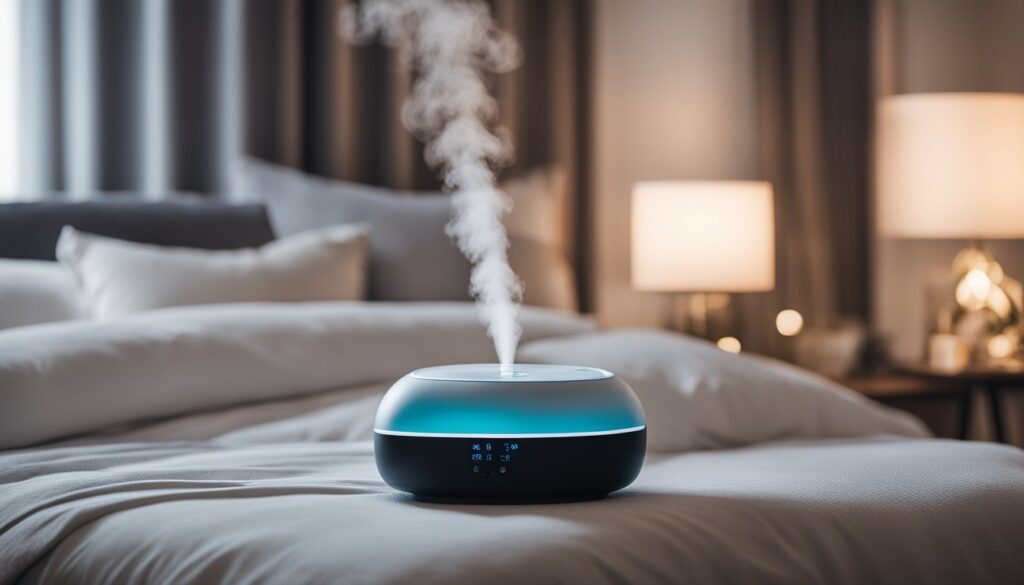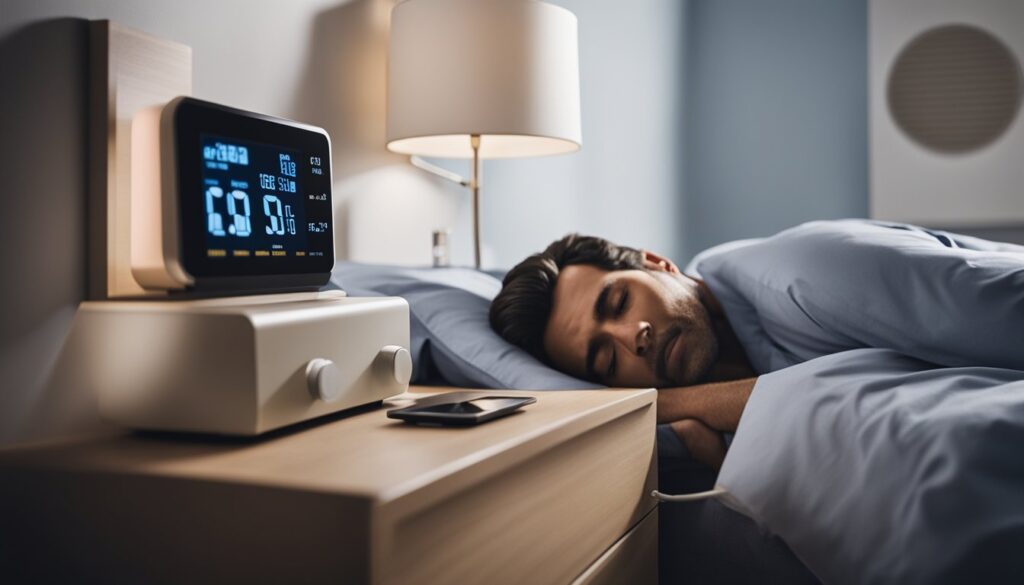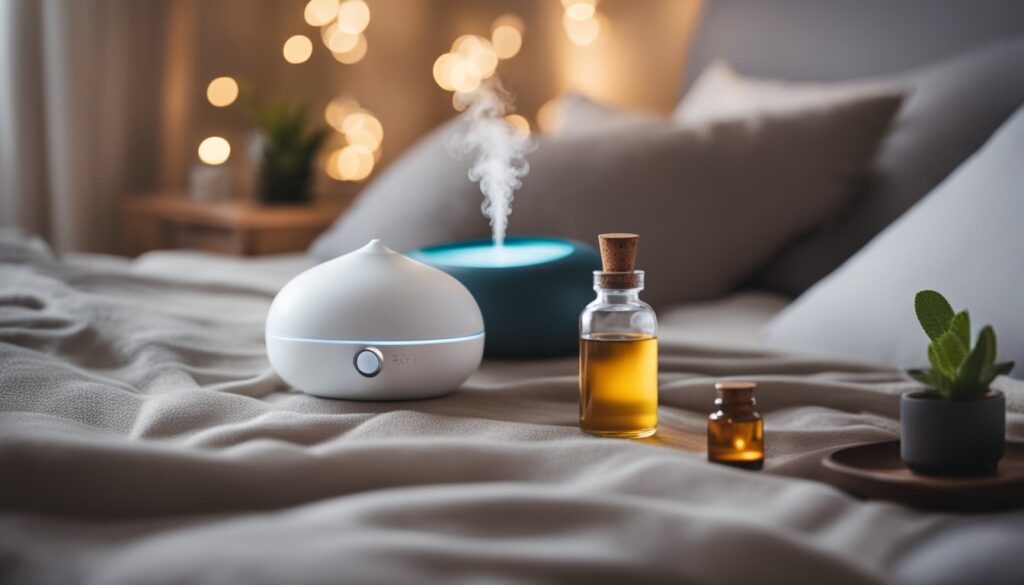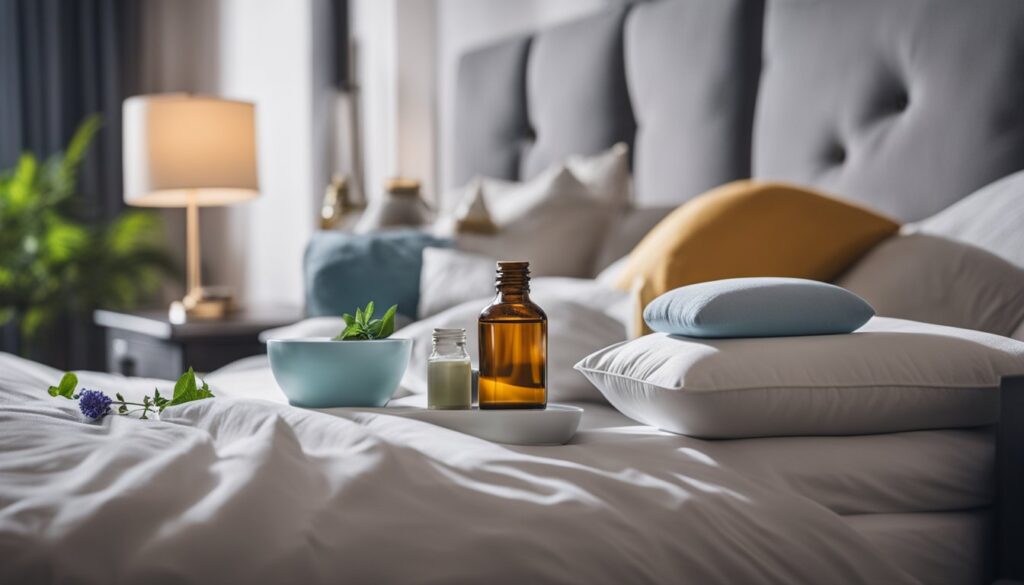Sleep apnea is a common sleep disorder characterized by repeated interruptions in breathing throughout the night. These pauses can occur multiple times per hour and last from a few seconds to minutes, leading to a decrease in blood oxygen levels and disrupting sleep. While the most commonly prescribed treatment for sleep apnea is the use of a Continuous Positive Airway Pressure (CPAP) machine, there can be various reasons why you might seek home remedies as either a supplement or alternative to traditional treatments.

Exploring home remedies for sleep apnea empowers you to take an active role in managing your symptoms. Lifestyle changes such as maintaining a healthy weight can significantly improve or even eliminate sleep apnea symptoms for some individuals. Adjusting your sleep position to prevent airway blockage and reducing alcohol consumption before bedtime, which can relax the throat muscles and hinder breathing, may also help mitigate the condition. Regular exercise can also contribute to overall health and potentially reduce sleep apnea episodes.
Not all home remedies will be appropriate or effective for every individual, and it is important to approach this condition under the guidance of a healthcare professional. For those with mild obstructive sleep apnea, natural remedies at home can be a starting point for relief. Nevertheless, for moderate to severe cases, the interventions of a sleep specialist are critical. If traditional treatment is not suitable for you or you are looking for supplementary strategies, consider discussing the feasibility of home remedies with your healthcare provider.
Understanding Sleep Apnea

Sleep apnea is a serious sleep disorder that involves repetitive breathing pauses during sleep, which can affect your overall health and quality of life. Recognizing the types, symptoms, risk factors, and potential complications is vital for managing this condition.
Types of Sleep Apnea
There are two main types of sleep apnea:
- Obstructive Sleep Apnea (OSA): This occurs when throat muscles relax excessively, blocking your airway during sleep.
- Central Sleep Apnea: Unlike OSA, central sleep apnea is not caused by a blockage but rather a failure of your brain to signal the muscles that control breathing.
Understanding which type affects you can influence the course of treatment your doctor may recommend, such as Continuous Positive Airway Pressure (CPAP).
Common Symptoms
Common symptoms associated with sleep apnea include:
- Snoring: Loud snoring can be a telltale sign of OSA.
- Daytime Sleepiness: Feeling overly sleepy during the day may indicate disrupted sleep due to apnea events.
- Breathing Pauses: Partners may report pauses in your breathing.
Recognizing these symptoms is essential for early intervention and medical treatment.
Risk Factors
Some risk factors for sleep apnea are modifiable while others are not. They include:
- Excess Body Weight: Obesity significantly increases the risk of OSA.
- Family History: Genetics may play a role in your susceptibility.
- Lifestyle Choices: Smoking and alcohol use can contribute to the development of sleep apnea.
Understanding these factors can guide you in making lifestyle changes that may reduce your risk.
Potential Complications
If left untreated, sleep apnea can lead to several serious health issues:
- High Blood Pressure
- Heart Disease
- Stroke
- Depression
- Diabetes
These complications underline the importance of seeking prompt medical attention if you suspect you have sleep apnea.
Diagnosis and Medical Treatment
Diagnosing sleep apnea usually involves a sleep study that monitors your breathing patterns. Treatment may include lifestyle changes, use of a CPAP machine, or even surgery for more severe cases. Other medical devices such as mandibular advancement devices, or medications may also be prescribed to alleviate symptoms.
Home Remedies and Lifestyle Adjustments

Home remedies for sleep apnea can improve your sleep quality and overall health. Alongside medical treatments, lifestyle adjustments are key to managing symptoms effectively.
Weight Management
Maintaining a healthy weight is crucial for reducing sleep apnea symptoms. Weight loss, especially around the neck, can lessen throat constriction. Consider incorporating regular exercise to aid in weight management.
Behavioral Changes
Making lifestyle changes such as smoking cessation and reducing alcohol consumption can significantly impact sleep apnea. Both smoking and alcohol can contribute to airway inflammation and relaxation that worsen sleep apnea.
Sleep Hygiene and Position
Adopting good sleep hygiene can influence the quality of your sleep. Ensure your sleeping position is conducive to clear breathing; for example, side sleeping can reduce airway blockage.
Environmental Modifications
Your sleeping environment matters. Use a humidifier to mitigate nasal congestion, especially if you have allergies. A clean, allergen-free bedroom aids in reducing respiratory irritations.
Alternative Therapies
Engaging in yoga or playing a wind instrument can strengthen the airway muscles. Mouth and throat exercises, as well as singing, may also benefit those with sleep apnea.
Natural Supplements and Herbs
Some individuals find relief with natural remedies like melatonin to regulate sleep cycles or lavender, valerian, or passionflower to promote relaxation. However, consult with your healthcare provider before using any natural supplements.
Frequently Asked Questions

In this section, you’ll find specific queries commonly asked regarding home treatments for sleep apnea, along with concise answers grounded in current knowledge and practice.
What are the most effective natural treatments for managing sleep apnea symptoms?
Natural treatments that may help manage sleep apnea symptoms include maintaining a healthy weight, practicing good sleep hygiene, and avoiding alcohol and sedatives before bedtime.
How does the use of an oral appliance compare to CPAP for sleep apnea treatment?
An oral appliance may be an effective alternative for those who cannot tolerate CPAP therapy. It’s intended to keep the airway open and is best suited for mild to moderate obstructive sleep apnea.
Can certain exercises improve the condition of those suffering from sleep apnea?
Yes, throat and tongue exercises may strengthen the muscles around the airway, potentially reducing sleep apnea symptoms. Additionally, a consistent exercise routine can aid in weight loss, which is beneficial for symptom improvement.
What role do positional therapy pillows play in mitigating sleep apnea complications?
Positional therapy pillows are designed to encourage side sleeping, which can help decrease the number of apneas experienced by individuals who mainly have obstructive episodes when lying on their back.
Are there any dietary remedies or drinks known to alleviate sleep apnea?
While no specific dietary remedies or drinks directly alleviate sleep apnea, a balanced diet supporting a healthy weight can reduce symptoms. Avoiding heavy meals and caffeine close to bedtime can also improve sleep quality.
How does honey consumption affect individuals with sleep apnea?
Ingesting honey may help reduce sleep apnea symptoms due to its anti-inflammatory properties and ability to soothe the throat. It is, however, not a cure for sleep apnea and should be considered as part of a broader treatment strategy.